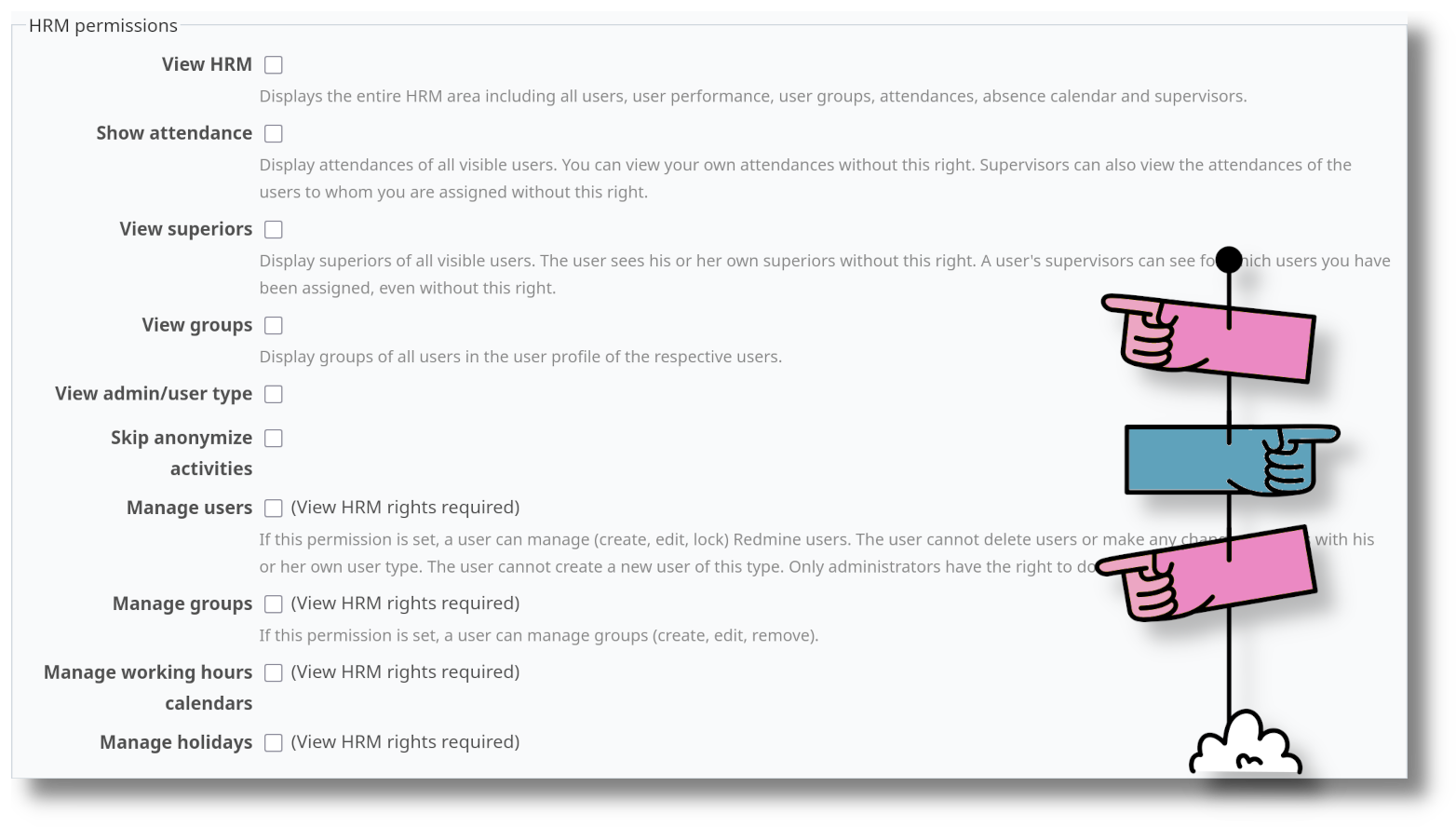Redmine HRM / User types
What are user types and why are they important?
The HRM plugin introduces an additional rights system that works independently of the standard Redmine roles. Instead of giving all users the same basic rights, you can define different “user types”—such as “Internal,” “External,” “Customer,” or more specific ones like “HR Manager,” “Developer,” or “Supplier.”
The key advantage: You can still allow users without administrator rights to manage other users. This is done using the HRM permission “Manage users,” which you can assign to each user type individually.
This solves a common problem in many companies: HR can immediately create new employees themselves—without an IT ticket and without a security risk. In addition, responsibilities can be mapped more clearly: HR managers can create and manage users, project managers can assign them as team members, and application administrators are responsible for configuration.
Practical benefits for your project management
Delegated User Management: The plugin allows delegation of user management to non-administrators.
Granular Access Control: The functionality works independently of projects and allows very fine-grained control of access rights.
Automatic Assignment: The system automatically assigns a predefined default user type to new users.
Integrated Security Mechanisms: Users with "Manage Users" rights cannot edit other accounts of the same user type or create new users of their own type. These tasks remain reserved for administrators.
Improved Reporting Capabilities: User type assignment enables filtered reports and evaluations. Time tracking can be evaluated separately by user type, allowing for more precise analyses and cost calculations.
Risk Mitigation: Instead of having multiple administrators (who can do and see everything), you can assign very specific responsibilities. HR can manage users, but not change the system configuration.
Practical tip for implementation
Start with a few clearly defined user types. A proven approach is:
- Standard: For the majority of your internal project members
- HR-Manager: With user, groups, working hours and calendar management permission
- External: For partners and suppliers with limited permissions
- Admin: For real system administrators only
Rename the supplied “Default” type accordingly and configure it for your main target group. For special privileges, you can then create additional types as needed.
Why the HRM plugin can be a powerful tool
The user type feature of the HRM plugin extends Redmine with a flexible rights system that goes beyond standard role management. The ability to delegate user management permission in a targeted manner without granting full administrator privileges makes this plugin extension particularly valuable for many Redmine installations. The granular system with various HRM permissions provides you with a significantly more powerful tool than standard Redmine roles.
The plugin thus solves a common problem in project organization: the balance between necessary flexibility and adequate system security. For Redmine environments with different user groups or more complex organizational structures, it offers significantly more design freedom than the standard system.
Who this feature is suitable for:
This feature is suitable for medium-sized to large organizations (from around 50+ users) with clear user groups.
Particularly useful if you:
- have an HR department that needs to manage users
- involve external partners/suppliers
- need complex attendance management
- care a lot about security and compliance
Less useful if:
- You only have a small team
- Standard role management is sufficient
- You want to minimize plugin dependencies
The use of user types is an important basic function of the HRM plugin. The plugin is part of the Business Class Bundle or the Enterprise+ Bundle. It requires the Reporting plugin as a basis and cannot run on its own. Availability of user types: Part of the current version
Buy HRM Plugin v4.3.0
Affordable prices regardless of your team size
1 Does not run stand-alone. Requires Redmine Reporting.

